|
This is a very special episode! I (Abby) had the honor to interview my Granny, Amy Walker. She tells us about her parents, and what it was like growing up with a Sioux herbal medicine man father and Cherokee mother who she went with to harvest the herbs for her dad. And later what it was like when her father died while her mother was pregnant with her 8th child. Amy tells us how they supported themselves through the knowledge, skills, and crafts they had. ". . . once we know that we have value, then we can be rooted like those plants: we can take our stand in our truth and grow from there . . . . That gift belongs to you, and you nurture it, and you make it worth something." Amy learned farming when she was growing up, too. Now she farms at the Mother Town, She talks about feeling like a tumbleweed, going wherever the wind was blowing, until she was 45 and started learning her Cherokee culture. I think thats what much of the American culture is feeling. I feel so grateful Granny is willing to teach what she's learned to help us find our roots, like the plants. The Bigwitch Indian Cooperative is just being created. Tyson Sampson (see Episode 13) and I are creating the Herb & Heritage Crop School part of the organization, in which Amy and other members of the Eastern Band of Cherokee will be teaching. Check out the upcoming classes here. 10/3/21 Preserving the Harvest 10/10/21 Bark, Twig, & Branch Medicine 10/17/21 Roots + Nuts = Herbs & Food "To me, one of the most important things that's so important is to have a way of gathering and feeding ourselves from the land, because we are of the land. We are the land." If you like the podcast, please consider supporting it, by becoming a patron on Patreon (for as little as 5 bucks a month), and get Amy's bonus interview all about sustainable ramp and sochan foraging and wild and culitivated food preservation. Want to donate to support the creation of the Bigwitch Indian Cooperative? Send it on PayPal below. Just click the button and select Bigwitch Indian Cooperative on the dropdown menu. Amy's Bio: Amy Walker is a tribal elder from the Eastern Band of Cherokee Indians. Her mother was Cherokee, and her father was Lakota from the Rosebud Reservation. Her father, who prior to attending boarding school was known as Lone Wolf, passed away when Amy was 10 years old. Amy’s mother, who also attended boarding school, raised eight children on her own. Amy’s life has been committed to breaking the cycle of fragmentation from her traditions. She dedicates herself to healing through a daily prayer practice to Creator, as well as ensuring that her children and grandchildren are learning the Cherokee language. Amy is also a strong advocate for nature, and has been an active voice in protecting the rights of endangered bears.
3 Comments
Doesn't this scene look delightful, like somewhere you'd like to go play? If you said no, you're probably experiencing hay fever like a lot of other folks. Allergies happen when something foreign enters the body, and the body sees it as a threat and overreacts. So what do we do about it? Well, every herbalist seems to have their own strategy. I'll give you mine from the benefit of my years of experience as my own guinea pig. First, make some changes. This can be the toughest part, but also make the longest lasting difference. #1 Cut out (or decrease as much as you can) dairy and sugar. These can create more mucus and knock down the immune system. #2 Drink more water or tea. Drinking more liquids can help wash the pollen away and thin the mucus. #3 More sleep and stress-reducing techniques. This seems pretty obvious, but is sometimes the hardest one to accomplish. More rest and less stress = more normal body functioning. #4 Add some color to your diet. Eating brightly colored fruit and veggies will beef up your immune system with anti-oxidants and anti-inflammatories to help stop the swelling of the mucus membranes and the histamine production. Dark leafy greens offer all these, plus the bitter taste can help your liver process more efficiently. You can also supplement with extra Vitamin C. The unsweetened powdered vitamin C is great. Since it's water soluble in our bodies, it's tough to get too much. Start with 1,000mg/day. You can keep adding more, until you find what works, or you start to have loose stools. Some other supplements you can add, include probiotics and enzymes. These will help get your digestion in shape, so it doesn't attack things that aren't a threat. I don't usually recommend products (and definitely am not getting paid for it), but I like PB8 for a probiotic. It doesn't need to be refrigerated, so can be easier to travel with and remember to take. Just remember, they're usually best taken between meals. There's a supplement from Solaray that I like called QBC Plex. It contains quercetin, a bioflavonoid and anti-histamine, and bromelain, an enzyme from pineapple, plus Vitamin C. Give your sinuses a rinse. You can wash the pollen away by using a neti pot with some salt water. If you want an easier option, try a saline spray or an herbal steam with thyme, bergamot (Monarda fistulosa), or bee balm (Monarda didyma). Create an herbal steam by boiling a cup or so of water in a large pot. Then turn off the heat, add the herbs, and steep covered for about 5 minutes. Then put your head over the pot (on a table at a comfortable height) and cover both with a towel. Breathe the vapors for as long as you can. You can also add a few drops of essential oils, like eucalyptus or mint. You can also reuse this, adding a few more drops essential oil, throughout the day. Eat local honey and bee pollen. Some people believe this is like giving your body a natural vaccine. You're taking in small amounts of the local pollen to stimulate your body's defenses slowly and gently, and create immunity. If you choose pollen, start very slowly, like a few grains a day, and work your way up to as much as a teaspoon. You want to make sure the pollen or honey is super local, so you're being exposed to the same pollen causing your allergies. This works best if you start at least a month before the allergy season. Try some natural antihistamines. One that I've had great luck with is a mixture of honey, fenugreek seeds, and black pepper. Soak a few tablespoons of the seeds in a little water overnight. Then take about a half teaspoon of honey, and mix it with 1/4 teaspoon of seeds, and a dash of pepper. Put the extra seeds in the fridge for later, and eat this combo as needed. Get spicy. My friend, Melissa, swears by fire cider for allergy symptoms. Fire cider is a combination of herbs infused in apple cider vinegar. Check out my recipe for my homemade Fire Tonic in my book, The Herbal Handbook for Homesteaders. You can add any herbs you want, but onions and garlic are high in sulphur, a histamine blocker. The peppers are high in anti-oxidants and anti-inflammatories, as are turmeric and ginger (if you choose to add them). Take a shot of cider as needed. 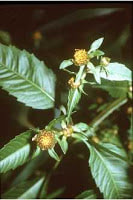 Some of my favorite herbs for allergies: Nettles (Urtica dioica, pictured above) These reduce histamine production. They're a great one to grow, but watch out for the stinging hairs! This is not the wood nettle (Laportea canadensis) that seems to grow more commonly in many parts of the eastern US. However, some people believe, because they're related, their effects are similar. Some say it works better if freeze dried, but I usually take it as a tincture, although the tea has seemed to help, too. Ground Ivy (Glechoma hederacea) This low-growing ground cover in the mint family is an awesome decongestant and great for sinus pressure. Tea or tincture works great, but the taste can be strong, so you can mix it with other mints, etc. Eyebright (Euphrasia officinalis) This herb is helpful for eye and sinus inflammation. I like it for the symptoms of itchy, watery eyes that accompany allergies (and for pink eye). Spanish Needles or Beggar's Tick (Bidens spp.) There are several similar related species of this unassuming little plant, sometimes with more white or yellow petals. I like to add it to allergy tincture formulas for its antihistamine action. Red Clover (Trifolium pratense) This lovely flower often grows abundantly and is high in minerals. It also helps to clear mucus. Mullein (Verbascum thapsus) The wooly leaves of mullein are a great demulcent, or a soother for the mucus membranes. They also have some expectorant action in the body. Some people like to strain this through fine mesh because of the little hairs, other people don't seem to be bothered by them. Burdock (Arctium spp.) This plant's root, favored in Asian cooking and bitters recipes, is a fantastic liver toner. Tincture it or you can lightly dry roast it for a nice roasted tea. Goldenrod (Solidago spp.) The sunny star of autumn, the prolific goldenrod, with many species far and wide is a wonderful antihistamine, decongestant, and anti-inflammatory. Find out more in the blog all about it. Check out the recipe for my Allergy Away Tincture, including these herbs, in The Herbal Handbook for Homesteaders. Now on to just a teeny bit of woo woo. I really do believe that every ailment has emotional, spiritual, and psychological aspects. When I'm experiencing allergy symptoms, I like to ask myself, "Is there something in my life right now (a situation, person, etc), that I'm reacting to?" It can be helpful to delve into that one and see what comes up, then try to work through your feelings about it. I've also had some success with visualization. Whatever works for you is what's best, but some examples include imagining a semi-porous membrane surrounding you that only lets in beneficial things (not pollen or harmful people or situations), or imagining a huge vacuum cleaner sucking up all the pollen around you. One of the most successful things for me, though, has been looking at where I can let go of stress and practice better self care. The immune response backs off as I feel safer to let my guard down; my body no longer needs to protect me. What has worked best for you? I'd love to read your comments! Now go frolic outside! |
Want to help us continue to do this important work |
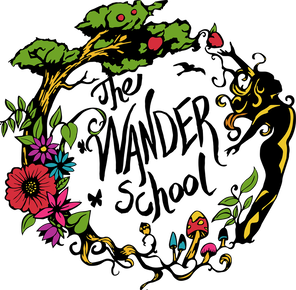
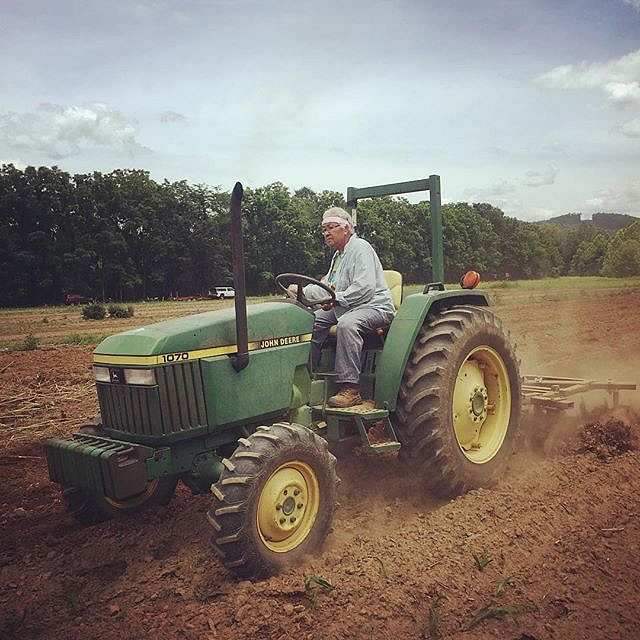
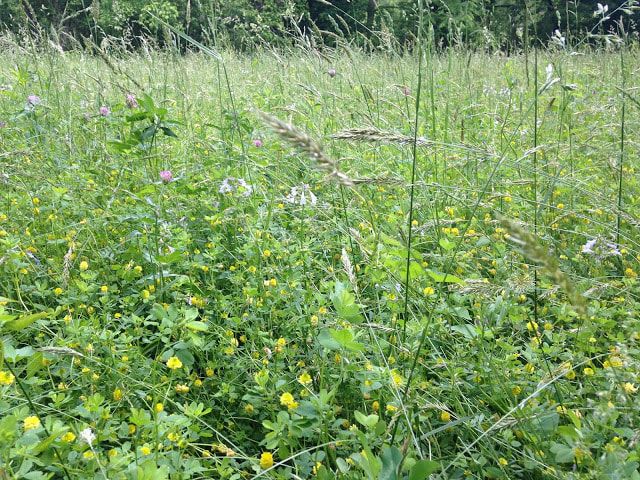
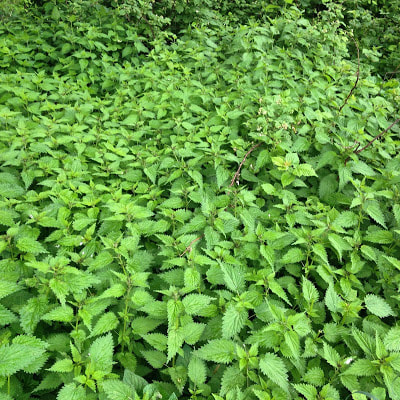

 RSS Feed
RSS Feed